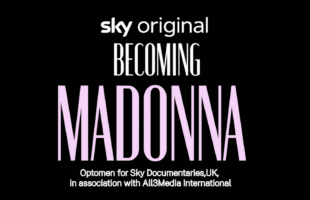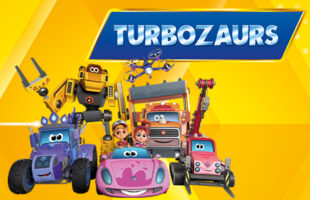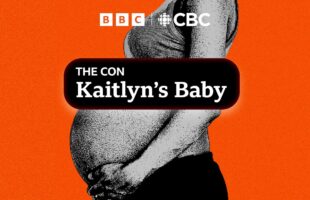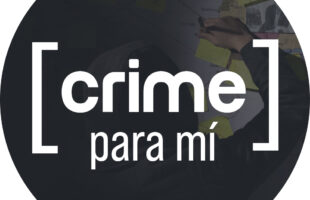The comedy genre has garnered much ratings success throughout television’s history because it touches the viewer on so many levels. The genre is one of the main staples of entertainment and TV that continues to evolve and is always in demand. Audiences across the world love comedy and globally, people watch comedy programmes on TV or online as a form of winding down after a long arduous day at work. It is a known fact that laughter is the best medicine amidst stressful lives.
In one of the global studies conducted by Comedy Central, close to 90% of the global audience (for Singapore it is 92%) feel that everyone needs some laughter in their lives and close to 40% (61% for Singapore) feel that watching a funny TV show improves their mood. This is well reflected in the strong performance of the Comedy Central Asia channel. In just under two years since its launch, Comedy Central Asia is now available 24/7 in 15 Asian markets via 39 providers across Cambodia, Fiji, Hong Kong, Indonesia, Malaysia, Mongolia, Myanmar, Palau, Papua New Guinea, Philippines, Samoa, Singapore, Taiwan, Thailand and Tonga. No other genre of entertainment has such a wide appeal amongst the wide diasporas of tastes and cultures as comedy.
“Based on our insights, comedy is by far the strongest interest that our target audience demands, with average viewing of 20 hours per week on television,” said Viacom International Media Networks (VIMN) Asia’s Paras Sharma, Vice President, Comedy Central and MTV Brands, and Digital Media. “Our research also showed 7 out of 10 people see comedy as a form of healthy escapism from the stresses of life, so it is no surprise why the channel is our fastest growing brand both globally and in Southeast Asia.”
For broadcasters, comedy programming has been a good investment because of the high re-run potential of these types of programmes, as viewers never seem to tire of watching their favourite comedies over and over again. Comedy often takes the form of the situation comedy (sitcom), with a set, limited cast, and humour stemming from a family-centric project such as ABC’s Modern Family. Satirical “fake news” – style programmes – such as MediaCorp’s The Noose – and animation have all proven popular at various points in the medium’s history as well.
Translating Comedy
Comedies can be occasionally difficult to translate internationally as humour in different cultures and territories can be varied. “I believe the key to creating comedy that translates well internationally lies in focusing on developing personalities and storylines that can potentially resonate with audiences worldwide because of their ‘humanistic’ elements,” said KABO International’s Managing Director, Arabelle Pouliot-Di Crescenzo.
KABO’s Our Crazy Family, which is currently in production for season four, pokes fun at the day-to-day life and relationships of a multi-generational family. Sibling rivalry, trying to find love again after divorce, texting teenagers, trying to gain acceptance from the in-laws, sleep-deprived new parents – are themes that everyone can relate to regardless of their country of origin.
KABO also launched scripted reality series Crime Fails! at MIPTV, featuring the most comical of crime stories which are shot as re-enactments and presented in a light-hearted manner by two faux detectives – all for the viewer’s shameless amusement.
For VIMN’s Sharma, he believes that comedy has the unique advantage of cutting across language barriers due to its inherent appeal. VIMN’s shows on Comedy Central such as Saturday Night Live, The Daily Show with Jon Stewart, Key & Peele, Tosh.0, Betty White’s Off Their Rockers, South Park have proven to resonate consistently across markets in the region while at the same time being different from each other in regards to the nature of content and presentation.
“It is important to understand that not all comedies have similar appeal and relevance across markets. This is where deep understanding of the market, its preferences and content fit comes into play,” Sharma said.
Launched in 2012, Comedy Central Asia’s rich content line-up is designed specifically to cater to Asian viewers.
Meanwhile, on the format front, Hat Trick International’s (HTI) comedies have travelled internationally. Episodes tells the story of a British husband-and-wife comedy writing team who travel to Hollywood to remake their successful British TV series, with disastrous results. The series was written by established writers David Crane – who co-created Friends – and Jeffrey Klarik, and stars Golden Globe Award winner Matt LeBlanc. Showtime had renewed Episodes for a fourth season which began airing on January 11.
“There is definitely a demand for comedy but it isn’t easy finding shows that are universally funny. While comedy can be a tough sell internationally, formats can be adapted to the market where the sense of humour differs,” said Sarah Tong, Director of Sales for HTI.
HTI’s other title, Some Girls, has recently been picked up by Fullscreen in the U.S. and Sky’s Neon in New Zealand, and also airs on Comedy Channel in Australia.
Shows such as Room 101 have been optioned in China; a locally adapted version for SBS 1 in Australia is about to air, while Whose Line is it Anyway? is in development in Australia and Vietnam. Both series will go into production this year. Scripted comedy format Worst Week of My Life has been picked up and signed for a second season as well by Pro TV in Romania; LNK in Lithuania and 1+1 in Ukraine.
Retaining Audience
To avoid plummeting show ratings and retain a share of the audience, broadcasters are vying to put out high-quality programmes with universal themes that are engaging and feature strong character-driven scripts and unexpected punch lines.
When it comes to strategies for audience growth and retention, Jon Rutherford, EVP, Distribution & Business Development at Tricon Films & Television believes that there is one key rule in comedy. “Be funny, funny, funny. Audiences will continue to return to the genre if they’re exhilarated by the experience. The moment the creative becomes lazy and stale, the comedic audience will respond by seeking entertainment elsewhere,” he said.
At MIPTV, Tricon launched its latest comedy series, Real Rob!, starring Emmy-nominated actor/comedian Rob Schneider. The series is a ‘close to the bone’ portrayal, giving viewers a closer look at the ups and downs of celebrity life and issues Schneider faces daily with his family.
Likewise, Comedy Central’s strategy works on multiple levels in order to set itself apart against repetitive, duplicated limited content and to provide audiences with a holistic comedy experience by providing the most diverse range of comedy content. Sharma said, “Nothing retains audience more than good content. However, the definition of good content for comedy is different from any other genre because of the very reason that makes comedy more successful than others – wide appeal amongst various audience groups.”
Impact of the Web
The comedy genre has been affected by the proliferation of the Internet and while piracy continues to be a concern for many broadcasters, the authenticated and official platforms provide a very good opportunity for content discovery.
“New, emerging talents are able to showcase their skills to a much wider audience; effective and authenticated utilisation of the platform also lets people discover and sample new content which finally leads them to television to enjoy the programming.
Nature of content that is popular on internet also provides good insights and learning on some of the themes and formats which resonate well with the audience,” said Sharma.
Echoing this, Tricon’s Rutherford believes that the web allows a vast landscape for professionals and amateurs to showcase their work on the same level, and offers interesting new business models for monetisation.
“The web has allowed instant access to undiscovered talent and gives a platform for new artists to build an audience. Comedy can be delivered in short form, long form or feature length. You don’t necessarily need a story arc over a multi-episode season to enjoy comedy,” he said.
Comedy also continues to display the flexibility and popularity required to work across all platforms, with original series making significant inroads in the linear marketplace and in turn, terrestrial series making their home on VOD platforms.
HTI’s Impress Me, launched at MIPTV, started on Soul Pancake’s YouTube channel and is currently developing on additional platforms and screens. Headed towards the other direction, Some Girls, which started life on a linear channel (BBC3), is now successful on various digital platforms worldwide.
The comedy genre has garnered much ratings success throughout television’s history because it touches the viewer on so many levels. The genre is one of the main staples of entertainment and TV that continues to evolve and is always in demand. Audiences across the world love comedy and globally, people watch comedy programmes on TV or online as a form of winding down after a long arduous day at work. It is a known fact that laughter is the best medicine amidst stressful lives.
In one of the global studies conducted by Comedy Central, close to 90% of the global audience (for Singapore it is 92%) feel that everyone needs some laughter in their lives and close to 40% (61% for Singapore) feel that watching a funny TV show improves their mood. This is well reflected in the strong performance of the Comedy Central Asia channel. In just under two years since its launch, Comedy Central Asia is now available 24/7 in 15 Asian markets via 39 providers across Cambodia, Fiji, Hong Kong, Indonesia, Malaysia, Mongolia, Myanmar, Palau, Papua New Guinea, Philippines, Samoa, Singapore, Taiwan, Thailand and Tonga. No other genre of entertainment has such a wide appeal amongst the wide diasporas of tastes and cultures as comedy.
“Based on our insights, comedy is by far the strongest interest that our target audience demands, with average viewing of 20 hours per week on television,” said Viacom International Media Networks (VIMN) Asia’s Paras Sharma, Vice President, Comedy Central and MTV Brands, and Digital Media. “Our research also showed 7 out of 10 people see comedy as a form of healthy escapism from the stresses of life, so it is no surprise why the channel is our fastest growing brand both globally and in Southeast Asia.”
For broadcasters, comedy programming has been a good investment because of the high re-run potential of these types of programmes, as viewers never seem to tire of watching their favourite comedies over and over again. Comedy often takes the form of the situation comedy (sitcom), with a set, limited cast, and humour stemming from a family-centric project such as ABC’s Modern Family. Satirical “fake news” – style programmes – such as MediaCorp’s The Noose – and animation have all proven popular at various points in the medium’s history as well.
Translating Comedy
Comedies can be occasionally difficult to translate internationally as humour in different cultures and territories can be varied. “I believe the key to creating comedy that translates well internationally lies in focusing on developing personalities and storylines that can potentially resonate with audiences worldwide because of their ‘humanistic’ elements,” said KABO International’s Managing Director, Arabelle Pouliot-Di Crescenzo.
KABO’s Our Crazy Family, which is currently in production for season four, pokes fun at the day-to-day life and relationships of a multi-generational family. Sibling rivalry, trying to find love again after divorce, texting teenagers, trying to gain acceptance from the in-laws, sleep-deprived new parents – are themes that everyone can relate to regardless of their country of origin.
KABO also launched scripted reality series Crime Fails! at MIPTV, featuring the most comical of crime stories which are shot as re-enactments and presented in a light-hearted manner by two faux detectives – all for the viewer’s shameless amusement.
For VIMN’s Sharma, he believes that comedy has the unique advantage of cutting across language barriers due to its inherent appeal. VIMN’s shows on Comedy Central such as Saturday Night Live, The Daily Show with Jon Stewart, Key & Peele, Tosh.0, Betty White’s Off Their Rockers, South Park have proven to resonate consistently across markets in the region while at the same time being different from each other in regards to the nature of content and presentation.
“It is important to understand that not all comedies have similar appeal and relevance across markets. This is where deep understanding of the market, its preferences and content fit comes into play,” Sharma said.
Launched in 2012, Comedy Central Asia’s rich content line-up is designed specifically to cater to Asian viewers.
Meanwhile, on the format front, Hat Trick International’s (HTI) comedies have travelled internationally. Episodes tells the story of a British husband-and-wife comedy writing team who travel to Hollywood to remake their successful British TV series, with disastrous results. The series was written by established writers David Crane – who co-created Friends – and Jeffrey Klarik, and stars Golden Globe Award winner Matt LeBlanc. Showtime had renewed Episodes for a fourth season which began airing on January 11.
“There is definitely a demand for comedy but it isn’t easy finding shows that are universally funny. While comedy can be a tough sell internationally, formats can be adapted to the market where the sense of humour differs,” said Sarah Tong, Director of Sales for HTI.
HTI’s other title, Some Girls, has recently been picked up by Fullscreen in the U.S. and Sky’s Neon in New Zealand, and also airs on Comedy Channel in Australia.
Shows such as Room 101 have been optioned in China; a locally adapted version for SBS 1 in Australia is about to air, while Whose Line is it Anyway? is in development in Australia and Vietnam. Both series will go into production this year. Scripted comedy format Worst Week of My Life has been picked up and signed for a second season as well by Pro TV in Romania; LNK in Lithuania and 1+1 in Ukraine.
Retaining Audience
To avoid plummeting show ratings and retain a share of the audience, broadcasters are vying to put out high-quality programmes with universal themes that are engaging and feature strong character-driven scripts and unexpected punch lines.
When it comes to strategies for audience growth and retention, Jon Rutherford, EVP, Distribution & Business Development at Tricon Films & Television believes that there is one key rule in comedy. “Be funny, funny, funny. Audiences will continue to return to the genre if they’re exhilarated by the experience. The moment the creative becomes lazy and stale, the comedic audience will respond by seeking entertainment elsewhere,” he said.
At MIPTV, Tricon launched its latest comedy series, Real Rob!, starring Emmy-nominated actor/comedian Rob Schneider. The series is a ‘close to the bone’ portrayal, giving viewers a closer look at the ups and downs of celebrity life and issues Schneider faces daily with his family.
Likewise, Comedy Central’s strategy works on multiple levels in order to set itself apart against repetitive, duplicated limited content and to provide audiences with a holistic comedy experience by providing the most diverse range of comedy content. Sharma said, “Nothing retains audience more than good content. However, the definition of good content for comedy is different from any other genre because of the very reason that makes comedy more successful than others – wide appeal amongst various audience groups.”
Impact of the Web
The comedy genre has been affected by the proliferation of the Internet and while piracy continues to be a concern for many broadcasters, the authenticated and official platforms provide a very good opportunity for content discovery.
“New, emerging talents are able to showcase their skills to a much wider audience; effective and authenticated utilisation of the platform also lets people discover and sample new content which finally leads them to television to enjoy the programming.
Nature of content that is popular on internet also provides good insights and learning on some of the themes and formats which resonate well with the audience,” said Sharma.
Echoing this, Tricon’s Rutherford believes that the web allows a vast landscape for professionals and amateurs to showcase their work on the same level, and offers interesting new business models for monetisation.
“The web has allowed instant access to undiscovered talent and gives a platform for new artists to build an audience. Comedy can be delivered in short form, long form or feature length. You don’t necessarily need a story arc over a multi-episode season to enjoy comedy,” he said.
Comedy also continues to display the flexibility and popularity required to work across all platforms, with original series making significant inroads in the linear marketplace and in turn, terrestrial series making their home on VOD platforms.
HTI’s Impress Me, launched at MIPTV, started on Soul Pancake’s YouTube channel and is currently developing on additional platforms and screens. Headed towards the other direction, Some Girls, which started life on a linear channel (BBC3), is now successful on various digital platforms worldwide.








